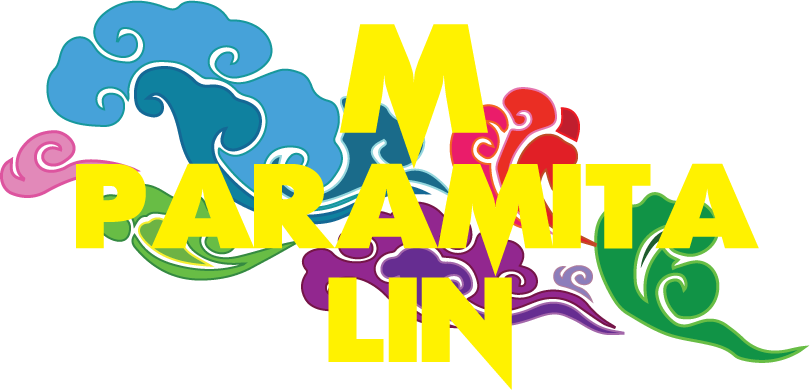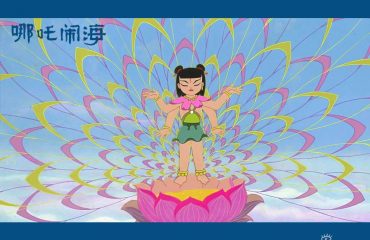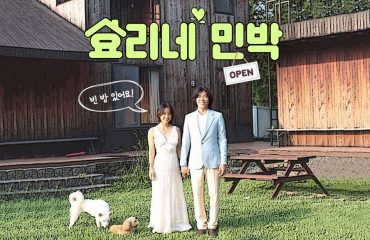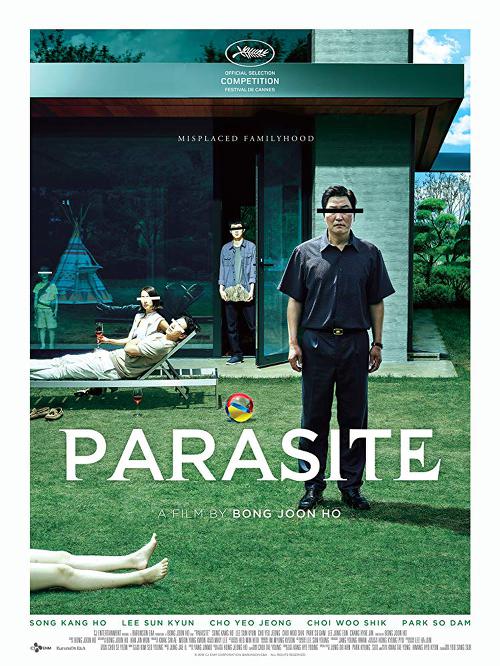
SPOILER WARNING: DO NOT READ THIS IF YOU HAVEN’T SEEN BONG JOON-HO’S PARASITE AND JORDAN PEELE’S US.
…
…
People are usually surprised when I say that I prefer Jordan Peele’s Us to Get Out. It’s true that Get Out is tighter and has a clearer arc, and the way it deals with race and white supremacy through horror is brilliant. But Us really struck me because it’s one of the few American films that deals with class issues. In the film, shadow versions of regular people live in a maze of tunnels underground. The shadow versions live parallel lives to their sunlight versions, except the shadow lives are twisted and deformed imitations of what goes on above ground. It’s a compelling metaphor for how the lives that the poor lead are distorted, uglier versions of the lives of the rich.
Just like the shadow people who literally live underneath the rich in Us, the impoverished Kim family in Bong Joon-ho’s Parasite also lives almost underground in a squalid semi-basement that’s infested with bugs. They have a window that looks out onto the street where drunks piss and they rely on stolen WiFi in order to just be able to participate in modern life and society. The WiFi theft is significantly introduced at the beginning of the film to establish that this family is a bunch of parasites, living off what others own and do, just like the bugs in their own home. In fact, speaking of the bugs, the family is a parasite when it comes to their own parasites, opening their windows to let the smoke from the city’s bug fumigation outside roll into their home instead of paying for their own extermination.
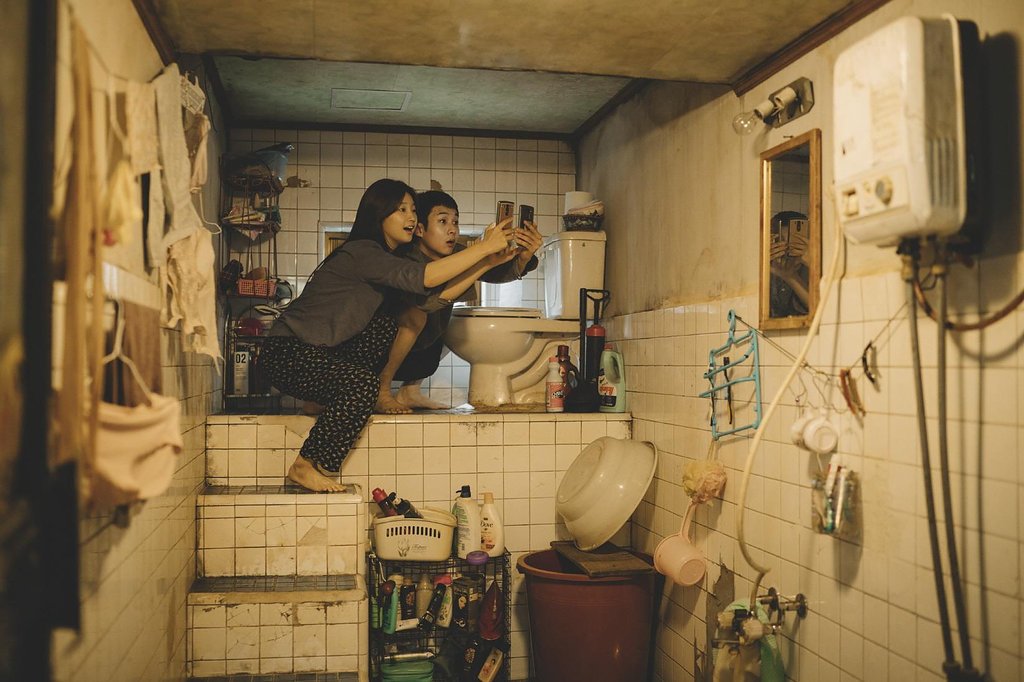
In Us, the rest of the Americans don’t know or even care to know about the underclass that lives beneath them–their pain and suffering are invisible–and when this underclass manages to break free, they murder and replace the rich people whose lives they covet. Since the film is done from the point of view of the rich, it represents the American rich’s fear of the poor and of their violent retaliation against the rich.
In contrast, the Kim family has no intention of retaliating against rich people. Living in a semi-basement, they aren’t completely buried away and from their window, they can still look out and hope to live like regular people. They may be out of sight to most of society, but they’re not completely invisible because the rich needs them to perform menial labour and other necessary services. We also watch the narrative from their perspective, so they’re not monsters like the underclass in Us.
When the Kim family eventually finds their way inside the beautiful house that belongs to the wealthy Park family as servants and tutors, they literally climb up to better positions. Not only is the house is at the top of a slope, to enter it, you need to walk up the stairs, and people are framed as though they’re ascending into light. Notice, however, that the Kim family has to go up on foot, while the wealthy just get driven home. The climb is tiring only for the poor.

The two Kim children, Ki-woo (Choi Woo-sik) and Ki-jung (Park So-dam), further ascend to the second floor to tutor the Park children. To even enter the house, the two siblings use English names for themselves (Jessica and Kevin)–as I’ve written before, anything Western is considered superior and adds a sheen of status. Also notice the frequent use of English phrases by the rich characters, including Ki-woo’s friend Min (Park Seo-joon), who gets him the job as tutor in the first place. (Incidentally, Min encourages Ki-woo to just fake his credentials, something that doesn’t occur to Min because he’s never felt entitled to pretend to be a different class.)
As someone who has tutored and done work for the rich, and whose value is predicated on my access to Western culture and languages, I felt a sense of recognition watching the scenes of the Kim siblings interacting with the Parks. There’s something unstable and slightly uncomfortable about service positions like tutors. Unlike servants, whose roles and borders are defined, tutors fall into a strange, liminal space when it comes to class. Like the Victorian governesses who had a higher status than the servants, tutors must have the same class signifiers as their employers–good schools, the right upbringing and tastes–and yet must also be half a class lower than their employers at the same time. Otherwise, why else would they be working for the rich? It’s such an ambiguous and shaky position to be in–you’re allowed liberties, like the way Ki-woo grabs his teen student Da-hye’s (Jung Ji-so) wrist or the borderline insolent way Ki-jung speaks to Mrs. Park (Cho Yeo-jeong), but there’s always the understanding that you’re in only until the family wants you out for whatever reason.
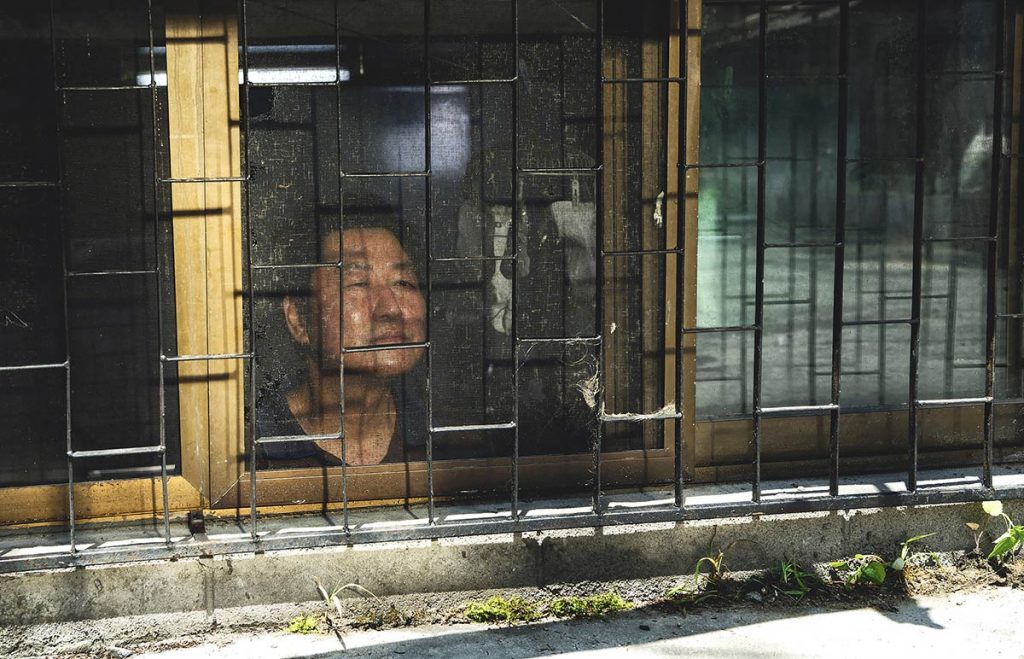
After bringing Ki-Jung in as an art tutor to the Da-song, the Parks’ young son, Ki-woo and Ki-Jung plot to replace the Parks’ driver with their father and later, with his help, replace the housekeeper with their mother by framing the two employees. The Kims know exactly how to freak out the Parks, who have the rich’s belief that the poor are dirty both morally and physically. The driver is set up as a kinky pervert and the previous housekeeper, Moon-gwang (Lee Jeong-un), is set up as having tuberculosis–an illness that’s been associated with poverty for decades.
The Parks don’t even think twice and quickly replace the two because to be poor means to be disposable. And here we start to see that it’s not just to poor who are parasites, but the rich are too. Like parasites, they feed off the labour and lives of the poor, and when the poor have no more use to them, the rich simply discard them and move on to another host. As parasites, the Parks and the Kims are mirrors of each other, down to the same number and sex of children. Even their living rooms have wide windows that look out onto a reminder of their social status–for the Kims, the barred windows provide a view of their impoverished neighbourhood, and the Parks get a beautiful, calm view of their spacious garden.
Of course, the huge twist in the film is the discovery that former housekeeper Moon-gwang’s husband, Guen-se (Park Myeong-hoon) has actually been living in the bowels of the Parks’ home–another pair of parasites. The conversation between Mrs. Kim and Moon-gwang teeters from formal to informal (if you don’t know, there is an embedded hierarchy in Korean language where jondaemal is used for elders and respected people while banmal is used for peers or inferiors). When she sees herself in an inferior position, Moon-gwang calls Mrs. Kim “unni” or “older sister”, but when the Kims’ deception is discovered, it becomes Mrs. Kim’s turn to placatingly call Moon-gwang “unni”. A Korean friend of mine pointed out the double meaning or use of “unni”: “It’s something you use as a form of respect to someone (female) older, but it is also used to call females (servers or cashiers) when you do not know what to call them.”
The struggle that ensues between the two lower-class families becomes violent but the Parks have no idea that it’s going on. They float above the fray, their money insulating them from the vindictiveness and desperation. When Mr. Kim comments to his wife that the Parks are really nice people despite being rich, she retorts that they’re nice because they’re rich.
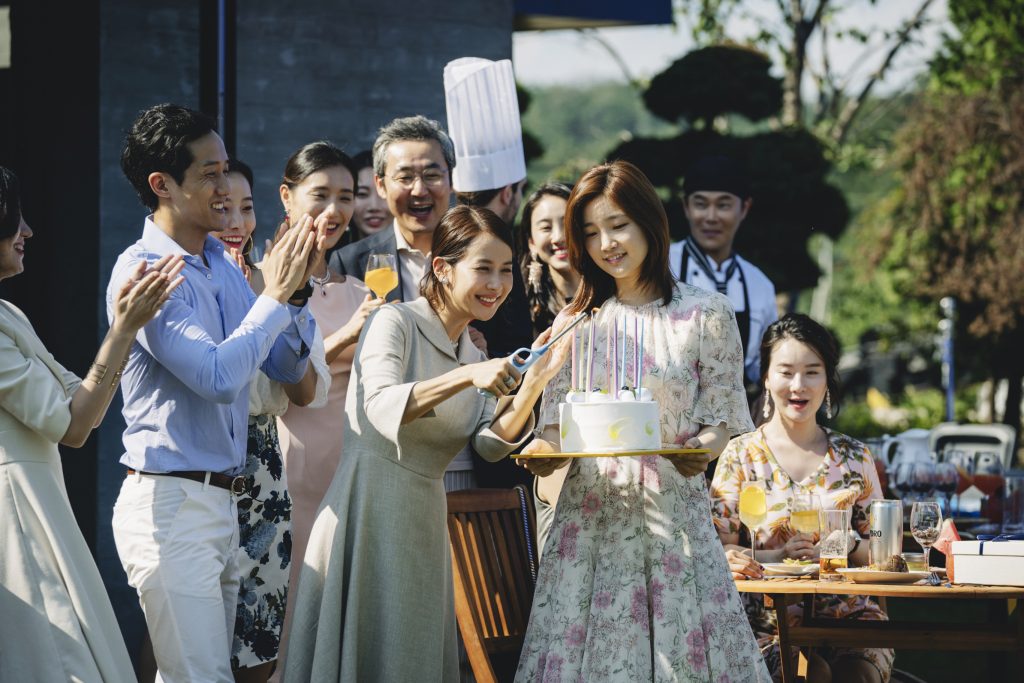
When I talked to Doretta about the film, she pointed out how Director Bong and Director Park Chan-wook (whose Sympathy for Lady Vengeance I wrote about here), two of South Korea’s most well-known genre-auteur directors, have a different understandings of humanity. She’s right, and I think it’s because of the micro-macro difference in how both directors see people. Both of them are fascinated by the monstrousness of individuals, but Director Park believes that this darkness is inherent to human nature and is given a chance to flourish by capitalist society, while Director Bong seems to think that capitalist society is what makes people act inhumanely and monstrously to each other.
And even this niceness is conditional on the servants knowing their place. The film is full of humiliations for the Kims, like the scene where Mrs. Park asks Mrs. Kim to cook a bowl of jjapaguri for her son. Jjapaguri is basically two kinds of instant noodles combined together, but according to Director Bong, Mrs. Park couldn’t stand the idea of her kid eating something so common, so she asked Mrs. Kim to add sirloin steak. When Da-song (Jung Hyung-jun) refuses to eat the jjapaguri, Mrs. Park offers it to Mrs. Kim, but at the last minute, decides to eat it herself because she wouldn’t want to waste sirloin steak on someone like Mrs. Kim. Another humiliation that eventually causes Mr. Kim to snap is the scent of poverty that the Kims carry with them, thanks to their dank semi-basement. Mr. Park can’t stand the smell and while he’s too well-bred to mention it to Mr. Kim’s face, he can’t help recoiling against the smell, and fatally, Mr. Kim also overhears him talking about the smell to Mrs. Park.
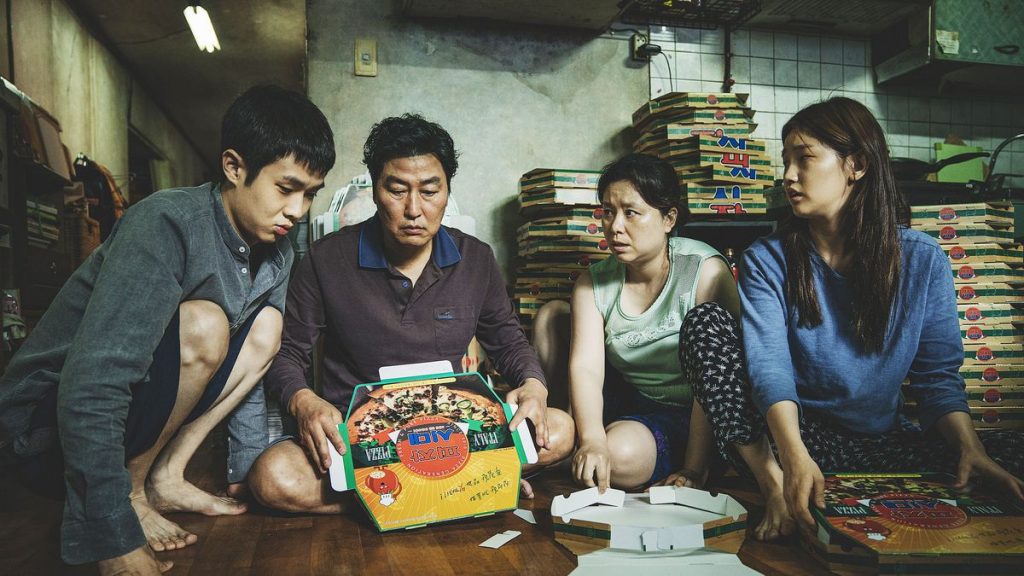
Over and over, the film shows us that the Kims’ lives simply don’t matter as much as the Parks’ do. The torrential rain that the Parks think is so refreshing creates a flood of sewage water that the Kims not only have to wade through, but eventually damages their home, rendering them homeless for the night. The Parks nicely ask that the Kims go to work the day after anyway, but their niceness doesn’t hide the fact that this is a command that can’t be ignored.
And even at the party, as Ki-jung lies dying, Mr. Park screams at Mr. Kim to drive them to the hospital for his son, not caring about anything or anyone else. In a way, it’s understandable–any parent would want to prioritize their own children–but Mr. Park’s wealth means that he’s allowed to do this, while Mr. Kim isn’t. Ki-jung is disposable in a way that Da-song isn’t.
A lot of people have wondered about the significance of the scholar’s rock in the film, and Director Bong has alluded to its symbolic power many times in different interviews. I think that the rock can also be seen as a poisoned apple of sorts–Min brings it to the Park household as a gift along with his request that Ki-woo tutor Da-hye. These trigger the Parks’ belief that they can finally start to climb up–it’s no coincidence that the rock looks like a mountain, as well–only to have Ki-woo smashed in the head by the same rock that started it all, beginning a series of tragic events that eventually force Mr. Kim underground again, but buried even deeper than before. He may have escaped the police but the film tells us that ultimately, there’s no escape at all. A parasite is always doomed to be a parasite.
